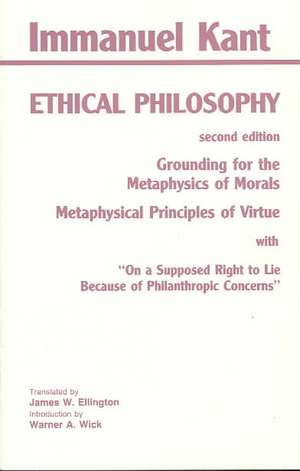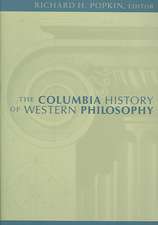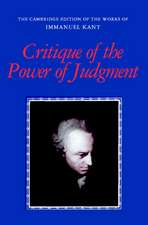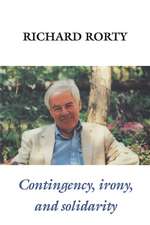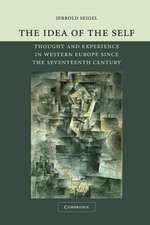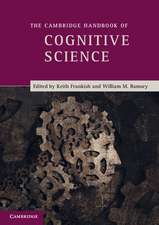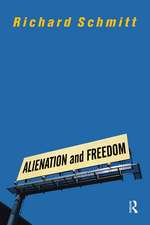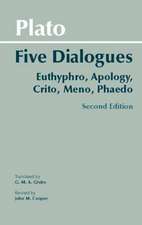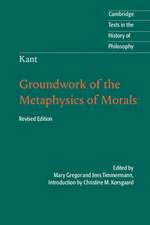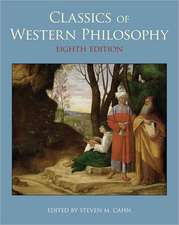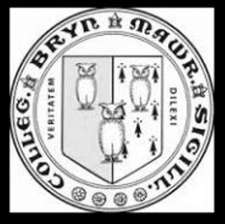Kant: Ethical Philosophy: Grounding for the Metaphysics of Morals, and, Metaphysical Principles of Virtue, with, "On a Supposed Right to Lie Because of Philanthropic Concerns": Hackett Classics
Autor Immanuel Kanten Limba Engleză Paperback – 15 oct 1995
| Toate formatele și edițiile | Preț | Express |
|---|---|---|
| Paperback (7) | 64.75 lei 6-8 săpt. | |
| Hackett Publishing Company – 15 oct 1995 | 113.47 lei 3-5 săpt. | |
| Cambridge University Press – 24 ian 1991 | 178.53 lei 3-5 săpt. | +19.18 lei 6-12 zile |
| Cambridge University Press – 3 oct 2017 | 201.24 lei 3-5 săpt. | +19.52 lei 6-12 zile |
| Cambridge University Press – 30 sep 2015 | 328.11 lei 3-5 săpt. | |
| A & D Publishing – 15 feb 2008 | 64.75 lei 6-8 săpt. | |
| Cambridge University Press – 21 feb 2018 | 200.18 lei 6-8 săpt. | |
| Cambridge University Press – 15 sep 2004 | 280.15 lei 6-8 săpt. | |
| Hardback (6) | 130.97 lei 6-8 săpt. | |
| Hackett Publishing Company – 15 oct 1995 | 294.69 lei 3-5 săpt. | |
| A & D Publishing – 3 apr 2018 | 130.97 lei 6-8 săpt. | |
| Cambridge University Press – 15 sep 2004 | 537.80 lei 6-8 săpt. | |
| Cambridge University Press – 21 feb 2018 | 538.02 lei 6-8 săpt. | |
| Cambridge University Press – 11 oct 2017 | 591.76 lei 6-8 săpt. | |
| Cambridge University Press – 3 oct 2012 | 1036.27 lei 6-8 săpt. |
Din seria Hackett Classics
-
 Preț: 65.88 lei
Preț: 65.88 lei - 15%
 Preț: 195.50 lei
Preț: 195.50 lei - 14%
 Preț: 184.08 lei
Preț: 184.08 lei - 7%
 Preț: 81.60 lei
Preț: 81.60 lei - 8%
 Preț: 345.52 lei
Preț: 345.52 lei -
 Preț: 154.09 lei
Preț: 154.09 lei - 8%
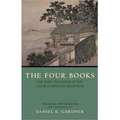 Preț: 106.45 lei
Preț: 106.45 lei - 8%
 Preț: 314.30 lei
Preț: 314.30 lei - 14%
 Preț: 171.00 lei
Preț: 171.00 lei - 11%
 Preț: 209.65 lei
Preț: 209.65 lei - 8%
 Preț: 125.82 lei
Preț: 125.82 lei - 7%
 Preț: 108.56 lei
Preț: 108.56 lei - 8%
 Preț: 309.90 lei
Preț: 309.90 lei - 9%
 Preț: 318.62 lei
Preț: 318.62 lei - 8%
 Preț: 293.06 lei
Preț: 293.06 lei - 18%
 Preț: 336.33 lei
Preț: 336.33 lei - 8%
 Preț: 292.34 lei
Preț: 292.34 lei - 8%
 Preț: 138.63 lei
Preț: 138.63 lei - 11%
 Preț: 210.28 lei
Preț: 210.28 lei - 7%
 Preț: 74.13 lei
Preț: 74.13 lei - 13%
 Preț: 263.30 lei
Preț: 263.30 lei - 13%
 Preț: 262.04 lei
Preț: 262.04 lei - 8%
 Preț: 85.81 lei
Preț: 85.81 lei - 12%
 Preț: 269.79 lei
Preț: 269.79 lei - 7%
 Preț: 101.44 lei
Preț: 101.44 lei - 8%
 Preț: 92.26 lei
Preț: 92.26 lei - 14%
 Preț: 183.57 lei
Preț: 183.57 lei - 9%
 Preț: 304.37 lei
Preț: 304.37 lei - 8%
 Preț: 294.64 lei
Preț: 294.64 lei - 14%
 Preț: 171.16 lei
Preț: 171.16 lei - 7%
 Preț: 128.27 lei
Preț: 128.27 lei - 8%
 Preț: 299.09 lei
Preț: 299.09 lei - 13%
 Preț: 264.76 lei
Preț: 264.76 lei - 8%
 Preț: 332.07 lei
Preț: 332.07 lei - 13%
 Preț: 246.98 lei
Preț: 246.98 lei - 13%
 Preț: 243.54 lei
Preț: 243.54 lei - 13%
 Preț: 265.61 lei
Preț: 265.61 lei - 8%
 Preț: 310.67 lei
Preț: 310.67 lei - 8%
 Preț: 118.74 lei
Preț: 118.74 lei - 7%
 Preț: 323.40 lei
Preț: 323.40 lei - 8%
 Preț: 331.87 lei
Preț: 331.87 lei - 13%
 Preț: 175.48 lei
Preț: 175.48 lei - 8%
 Preț: 327.47 lei
Preț: 327.47 lei - 13%
 Preț: 231.00 lei
Preț: 231.00 lei
Preț: 113.47 lei
Preț vechi: 123.06 lei
-8% Nou
Puncte Express: 170
Preț estimativ în valută:
21.72€ • 22.59$ • 18.20£
21.72€ • 22.59$ • 18.20£
Carte disponibilă
Livrare economică 20 februarie-06 martie
Preluare comenzi: 021 569.72.76
Specificații
ISBN-13: 9780872203204
ISBN-10: 0872203204
Pagini: 238
Dimensiuni: 9 x 215 x 15 mm
Greutate: 0.27 kg
Ediția:2 Rev ed.
Editura: Hackett Publishing Company
Colecția Hackett Publishing Company, Inc (US)
Seria Hackett Classics
ISBN-10: 0872203204
Pagini: 238
Dimensiuni: 9 x 215 x 15 mm
Greutate: 0.27 kg
Ediția:2 Rev ed.
Editura: Hackett Publishing Company
Colecția Hackett Publishing Company, Inc (US)
Seria Hackett Classics
Cuprins
1. Thoughts on the true estimation of living forces and assessment of the demonstrations that Leibniz and other scholars of mechanics have made use of in this controversial subject, together with some prefatory considerations pertaining to the force of bodies in general (1746–9) Translated by Jeffrey B. Edwards and Martin Schönfeld; 2. Examination of the question whether the rotation of the Earth on its axis by which it brings about the alternation of day and night has undergone any change since its origin and how one can be certain of this, which [question] was set by the Royal Academy of Sciences in Berlin as the prize question for the current year (1754) Translated by Olaf Reinhardt; 3. The question, whether the Earth is ageing, considered from a physical point of view (1754) Translated by Olaf Reinhardt; 4. Universal natural history and theory of the heavens or essay on the constitution and the mechanical origin of the whole universe according to Newtonian principles (1755) Translated by Olaf Reinhardt; 5. Succinct exposition of some meditations on fire (1755) Translated by Lewis White Beck; 6. On the causes of earthquakes on the occasion of the calamity that befell the western countries of Europe towards the end of last year (1756) Translated by Olaf Reinhardt; 7. History and natural description of the most noteworthy occurrences of the earthquake that struck a large part of the Earth at the end of the year 1755 (1756) Translated by Olaf Reinhardt; 8. Continued observations on the earthquakes that have been experienced for some time (1756) Translated by Olaf Reinhardt; 9. New notes to explain the theory of the winds, in which, at the same time, he invites attendance at his lectures (1756) Translated by Olaf Reinhardt; 10. Plan and announcement of a series of lectures on physical geography with an appendix containing a brief consideration of the question: whether the West winds in our regions are moist because they travel over a great sea (1757) Translated by Olaf Reinhardt; 11. New doctrine of motion and rest and the conclusions associated with it in the fundamental principles of natural science while at the same time his lectures for this half-year are announced (1758) Translated by Olaf Reinhardt; 12. Review of Silberschlag's work: theory of the fireball that appeared on 23 July 1762 (1764) Translated by Eric Watkins; 13. Notice of Lambert's correspondence (1782) Translated by Eric Watkins; 14. On the volcanoes on the Moon (1785) Translated by Olaf Reinhardt; 15. Something concerning the influence of the Moon on the weather (1794) Translated by Olaf Reinhardt; 16. Physical geography (1802).
Recenzii
'… this volume is a much-needed, very valuable contribution to scholarship. It brings together important texts by an important philosopher, readably translated and edited to the highest standards in the field. It will easily become the new reference work on Kant's natural-scientific output and will foreseeably remain the standard text for decades to come.' Metascience
'The value of this publication is conspicuous given that it brings together Kant's specialised works on natural science and makes them available in English translation, some of them even for the first time … this volume can be extremely helpful for historians of astronomy and Kant scholars who are interested in assessing the extent to which Kant influenced his contemporaries and immediate successors.' Silvia De Bianchi, Journal for the History of Astronomy
'The value of this publication is conspicuous given that it brings together Kant's specialised works on natural science and makes them available in English translation, some of them even for the first time … this volume can be extremely helpful for historians of astronomy and Kant scholars who are interested in assessing the extent to which Kant influenced his contemporaries and immediate successors.' Silvia De Bianchi, Journal for the History of Astronomy
Descriere
Descriere de la o altă ediție sau format:
This edition includes two important texts illustrating Kants's view of history along with notes and a comprehensive bibliography.
This edition includes two important texts illustrating Kants's view of history along with notes and a comprehensive bibliography.
Notă biografică
Immanuel Kant ( 22 April 1724 - 12 February 1804) was an influential German philosopher[23] in the Age of Enlightenment. In his doctrine of transcendental idealism, he argued that space, time, and causation are mere sensibilities; "things-in-themselves" exist, but their nature is unknowable.[24][25] In his view, the mind shapes and structures experience, with all human experience sharing certain structural features. In one of his major works, the Critique of Pure Reason (1781; second edition 1787),[26] he drew a parallel to the Copernican revolution in his proposition that worldly objects can be intuited a priori ('beforehand'), and that intuition is therefore independent from objective reality.[b]
Kant believed that reason is also the source of morality, and that aesthetics arise from a faculty of disinterested judgment. Kant's views continue to have a major influence on contemporary philosophy, especially the fields of epistemology, ethics, political theory, and post-modern aesthetics. He attempted to explain the relationship between reason and human experience and to move beyond the failures of traditional philosophy and metaphysics. He wanted to put an end to what he saw as an era of futile and speculative theories of human experience, while resisting the skepticism of thinkers such as David Hume. He regarded himself as showing the way past the impasse between rationalists and empiricists,[28] and is widely held to have synthesized both traditions in his thought.[29]
Kant was an exponent of the idea that perpetual peace could be secured through universal democracy and international cooperation. He believed that this would be the eventual outcome of universal history, although it is not rationally planned.[30] The nature of Kant's religious ideas continues to be the subject of philosophical dispute, with viewpoints ranging from the impression that he was an initial advocate of atheism who at some point developed an ontological argument for God, to more critical treatments epitomized by Schopenhauer, who criticized the imperative form of Kantian ethics as "theological morals" and the "Mosaic Decalogue in disguise",[31] and Nietzsche, who claimed that Kant had "theologian blood"[32] and was merely a sophisticated apologist for traditional Christian faith
